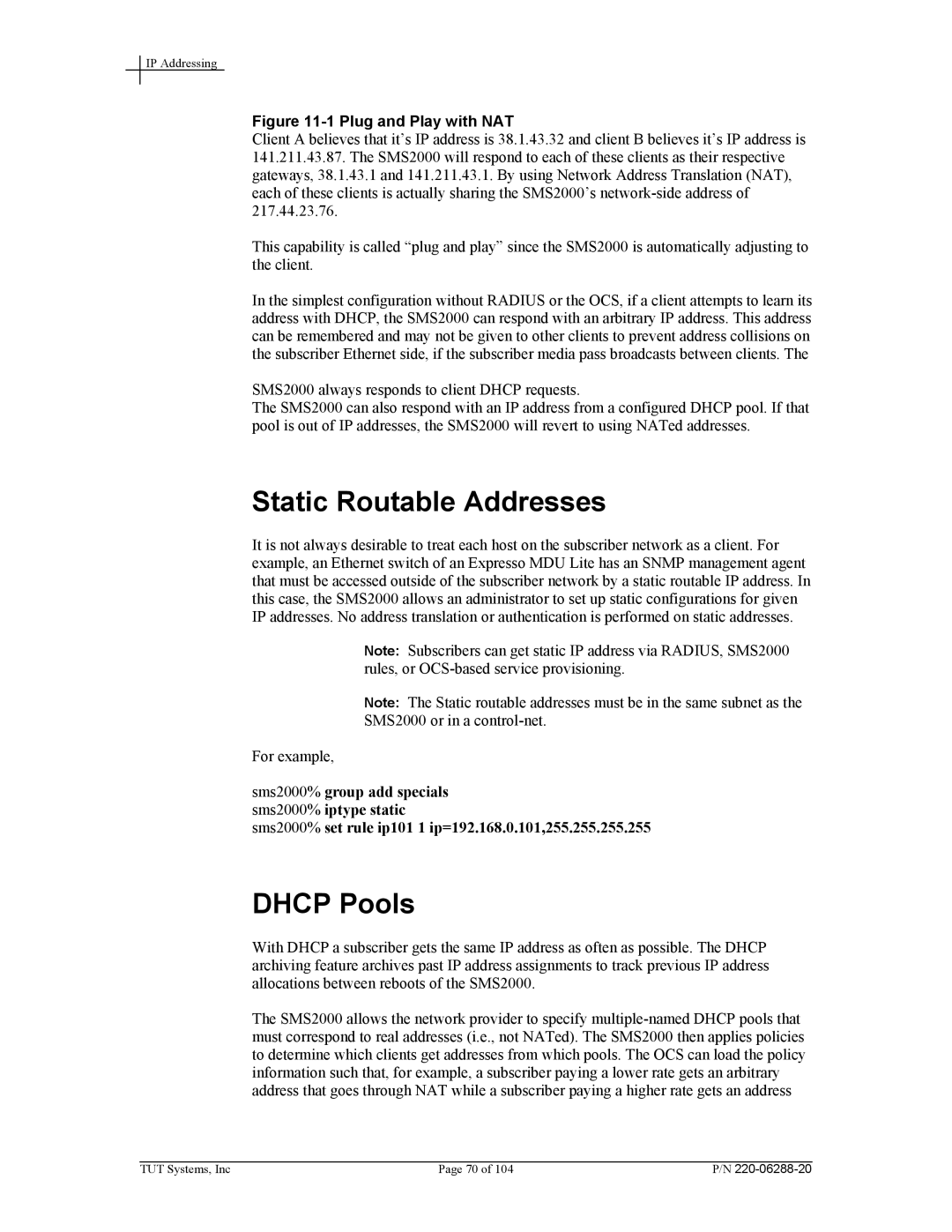
IP Addressing
Figure 11-1 Plug and Play with NAT
Client A believes that it’s IP address is 38.1.43.32 and client B believes it’s IP address is 141.211.43.87. The SMS2000 will respond to each of these clients as their respective gateways, 38.1.43.1 and 141.211.43.1. By using Network Address Translation (NAT), each of these clients is actually sharing the SMS2000’s
This capability is called “plug and play” since the SMS2000 is automatically adjusting to the client.
In the simplest configuration without RADIUS or the OCS, if a client attempts to learn its address with DHCP, the SMS2000 can respond with an arbitrary IP address. This address can be remembered and may not be given to other clients to prevent address collisions on the subscriber Ethernet side, if the subscriber media pass broadcasts between clients. The
SMS2000 always responds to client DHCP requests.
The SMS2000 can also respond with an IP address from a configured DHCP pool. If that pool is out of IP addresses, the SMS2000 will revert to using NATed addresses.
Static Routable Addresses
It is not always desirable to treat each host on the subscriber network as a client. For example, an Ethernet switch of an Expresso MDU Lite has an SNMP management agent that must be accessed outside of the subscriber network by a static routable IP address. In this case, the SMS2000 allows an administrator to set up static configurations for given IP addresses. No address translation or authentication is performed on static addresses.
Note: Subscribers can get static IP address via RADIUS, SMS2000 rules, or
Note: The Static routable addresses must be in the same subnet as the
SMS2000 or in a
For example,
sms2000% group add specials sms2000% iptype static
sms2000% set rule ip101 1 ip=192.168.0.101,255.255.255.255
DHCP Pools
With DHCP a subscriber gets the same IP address as often as possible. The DHCP archiving feature archives past IP address assignments to track previous IP address allocations between reboots of the SMS2000.
The SMS2000 allows the network provider to specify
TUT Systems, Inc | Page 70 of 104 | P/N |
